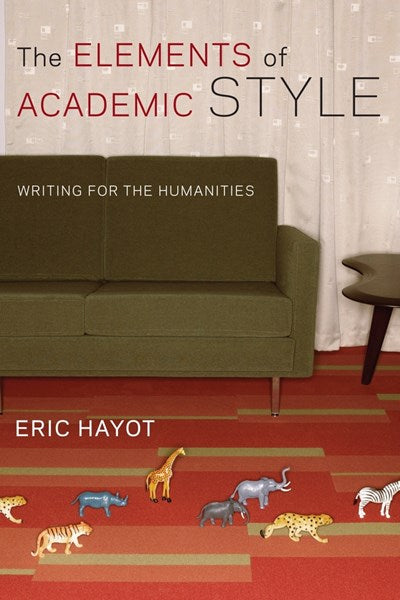Combining psychological support with practical suggestions for structuring paragraphs and essays composing introductions and conclusions, developing schedules and habits for writing, and using notes and citations, Eric Hayot rejuvenates scholarship and writing in the humanities. From small concerns to big-picture issues, he helps students, newly minted Ph.D.'s, and established professors shape their work and develop their voices while also adjusting their perspective as writers, encouraging scholars to think of themselves as makers and doers of important work.
Eric Hayot teaches graduate students and faculty in literary and cultural studies how to think and write like a professional scholar. From granular concerns, such as sentence structure and grammar, to big-picture issues, such as adhering to genre patterns for successful research and publishing and developing productive and rewarding writing habits, Hayot helps ambitious students, newly minted Ph.D.'s, and established professors shape their work and develop their voices.
Hayot does more than explain the techniques of academic writing. He aims to adjust the writer's perspective, encouraging scholars to think of themselves as makers and doers of important work. Scholarly writing can be frustrating and exhausting, yet also satisfying and crucial, and Hayot weaves these experiences, including his own trials and tribulations, into an ethos for scholars to draw on as they write. Combining psychological support with practical suggestions for composing introductions and conclusions, developing a schedule for writing, using notes and citations, and structuring paragraphs and essays, this guide to the elements of academic style does its part to rejuvenate scholarship and writing in the humanities.

